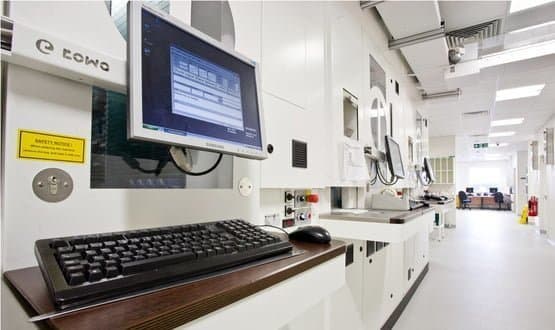NHS trust IT spend up more than £150m since WannaCry
- 15 August 2019

NHS trusts have upped their IT spending by at least £152 million since 2017’s WannaCry ransomware attack, according to figures obtained through the Freedom of Information Act.
Research by government policy think tank, Parliament Street, revealed that 65 NHS trusts spent a total of £612m on IT in the 2018/19 financial year, compared to a spend of £495m in the previous year and £460m in the year directly preceding WannaCry.
The highest reported increase came from Leeds Teaching Hospitals NHS Trust, which disclosed a funding boost of 10.9m, rising from £7.7m in 2016/17 to £18.6m in 2018/19.
The hospital trust, which is one of the largest in the UK, has been a pioneer of integrating health and care despite a history fraught with IT issues.
It is one of six demonstrator sites in the £12m Scan4Safety programme, which is exploring whether the implementation of standard barcodes in the NHS could help improve patient safety and care.
The trust is also in the midst of an effort to digitise its pathology lab and deliver a single laboratory information management system across West Yorkshire and Harrogate.
Elsewhere in Parliament Street’s findings, the Royal Marsden reported an IT spending increase of over £10.8m, rising from £5.5, in 2016/17 to £16.2 the following year.
University Hospitals of Leicester NHS Trust upped its spending by £7.9m, from £11.6m in 2016/17 to £19.5m 2018/19. Royal Free, meanwhile, saw an increase of £7.5 million, rising from £16.7m in 2016/17 to £24.2m in 2018/19.
Parliament Street submitted a Freedom of Information (FOI) request to 151 NHS trusts, of which 65 responded.
Commenting on the findings, Sheila Flavell, COO of professional services firm FDM Group, said: “Building an NHS fit for the future means training and equipping doctors, nurses and medical professionals with the very latest digital skills.
“Key to this effort is ensuring existing staff have the opportunity to re-skill in critical areas like big data and cyber security, as well as recruiting staff from more diverse backgrounds.
“This approach will simultaneously drive efficiencies in the health service, whilst having a real impact on patient experiences.”
The ever-tetchy issue of WannaCry remains the focal point of conversations around NHS cyber security.
The worldwide ransomware attack targeted computers running the Microsoft Windows operating system and left the NHS with a £92m IT bill.
There has been a concerted effort across NHS organisations to boost cyber security since, with NHS Digital making moves to ensure trusts have the right resources to prevent future incidents.
Most recently, NHS Digital signed a £40m, five-year contract with Accenture that will see NHS trusts offered free cyber security tools.
Yet Digital Health News reported in June that £130m allocated to improve digitisation, data processing and cyber security across NHS organisations went unspent in 2018/19.
Related stories:
- Potential of new tech will be harnessed as part of £1.8bn NHS cash boost
- NHSmail registers 11 million blocked attacks in three years
- 100 NHS boards completed cyber security training since WannaCry





1 Comments
It would be interesting to know how much of the security-related spend has been with US companies. Let’s not forget that the tools behind the Wannacry exploit were originally stolen from the US NSA.
Comments are closed.